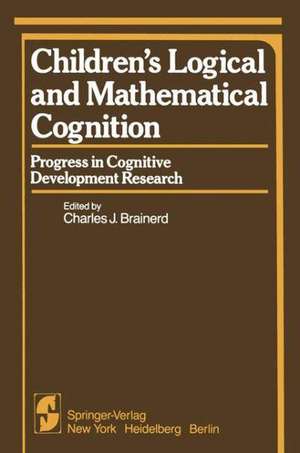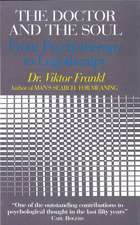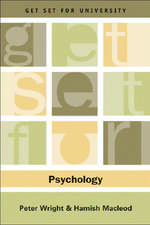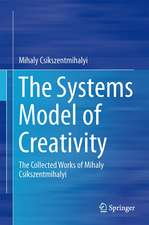Children’s Logical and Mathematical Cognition: Progress in Cognitive Development Research: Springer Series in Cognitive Development
Editat de C. J. Brainerden Limba Engleză Paperback – 21 dec 2011
Din seria Springer Series in Cognitive Development
-
 Preț: 382.75 lei
Preț: 382.75 lei -
 Preț: 388.90 lei
Preț: 388.90 lei -
 Preț: 386.61 lei
Preț: 386.61 lei -
 Preț: 383.93 lei
Preț: 383.93 lei - 18%
 Preț: 778.13 lei
Preț: 778.13 lei -
 Preț: 383.71 lei
Preț: 383.71 lei -
 Preț: 387.75 lei
Preț: 387.75 lei -
 Preț: 381.43 lei
Preț: 381.43 lei -
 Preț: 391.61 lei
Preț: 391.61 lei -
 Preț: 396.02 lei
Preț: 396.02 lei -
 Preț: 392.60 lei
Preț: 392.60 lei - 15%
 Preț: 635.80 lei
Preț: 635.80 lei -
 Preț: 382.75 lei
Preț: 382.75 lei - 5%
 Preț: 371.30 lei
Preț: 371.30 lei -
 Preț: 388.90 lei
Preț: 388.90 lei - 5%
 Preț: 368.37 lei
Preț: 368.37 lei - 15%
 Preț: 592.29 lei
Preț: 592.29 lei -
 Preț: 386.81 lei
Preț: 386.81 lei
Preț: 384.86 lei
Nou
Puncte Express: 577
Preț estimativ în valută:
73.64€ • 77.10$ • 60.93£
73.64€ • 77.10$ • 60.93£
Carte tipărită la comandă
Livrare economică 07-21 aprilie
Preluare comenzi: 021 569.72.76
Specificații
ISBN-13: 9781461394686
ISBN-10: 1461394686
Pagini: 240
Ilustrații: XVII, 216 p.
Dimensiuni: 155 x 235 x 13 mm
Greutate: 0.34 kg
Ediția:Softcover reprint of the original 1st ed. 1982
Editura: Springer
Colecția Springer
Seriile Springer Series in Cognitive Development, Progress in Cognitive Development Research
Locul publicării:New York, NY, United States
ISBN-10: 1461394686
Pagini: 240
Ilustrații: XVII, 216 p.
Dimensiuni: 155 x 235 x 13 mm
Greutate: 0.34 kg
Ediția:Softcover reprint of the original 1st ed. 1982
Editura: Springer
Colecția Springer
Seriile Springer Series in Cognitive Development, Progress in Cognitive Development Research
Locul publicării:New York, NY, United States
Public țintă
ResearchCuprins
1 Conservation—Nonconservation: Alternative Explanations.- Conservation and the Appreciation of an Identity Rule.- Operational and Nonoperational Conservation.- Nonconservation and the Overreliance on Perceptual Cues.- Pseudononconservation.- Nonoperational Conservation.- Conclusions.- Future Research: The Development of the Identity Rule.- Reference Notes.- References.- 2 The Acquisition and Elaboration of the Number Word Sequence.- Acquisition of the Sequence.- Elaboration of the Sequence.- Conclusion.- Reference Notes.- References.- 3 Children’s Concepts of Chance and Probability.- Piagetian Theory.- Subsequent Studies.- Theoretical Implications.- References.- 4 The Development of Quantity Concepts: Perceptual and Linguistic Factors.- Linguistic Factors and the Development of Quantity Concepts.- A Taxonomy of Quantity Concepts.- The Relationship between Language and Thought in the Child.- Study 1: Concept versus Language.- Study 2: Does Language Training Facilitate Concept Acquisition?.- Study 3: Visual versus Verbal Functions.- Study 4: Training of Cognitive and Language Abilities.- Study 5: Cognitive Development of Children with Impaired Language Development.- Study 6: The Abstraction of the Concept of Number.- Conclusion.- Reference Notes.- References.- 5 Culture and the Development of Numerical Cognition: Studies among the Oksapmin of Papua New Guinea.- Methodology and Cross-Cultural Number Research.- The Oksapmin Community.- Studies on Numerical Cognition among the Oksapmin.- Concluding Remarks.- Reference Notes.- References.- 6 Children’s Concept Learning as Rule-Sampling Systems with Markovian Properties.- Concept Learning as Rule Sampling.- Some Questions about Concept Learning.- Some Experimental Evidence.- Remark.- References.
















